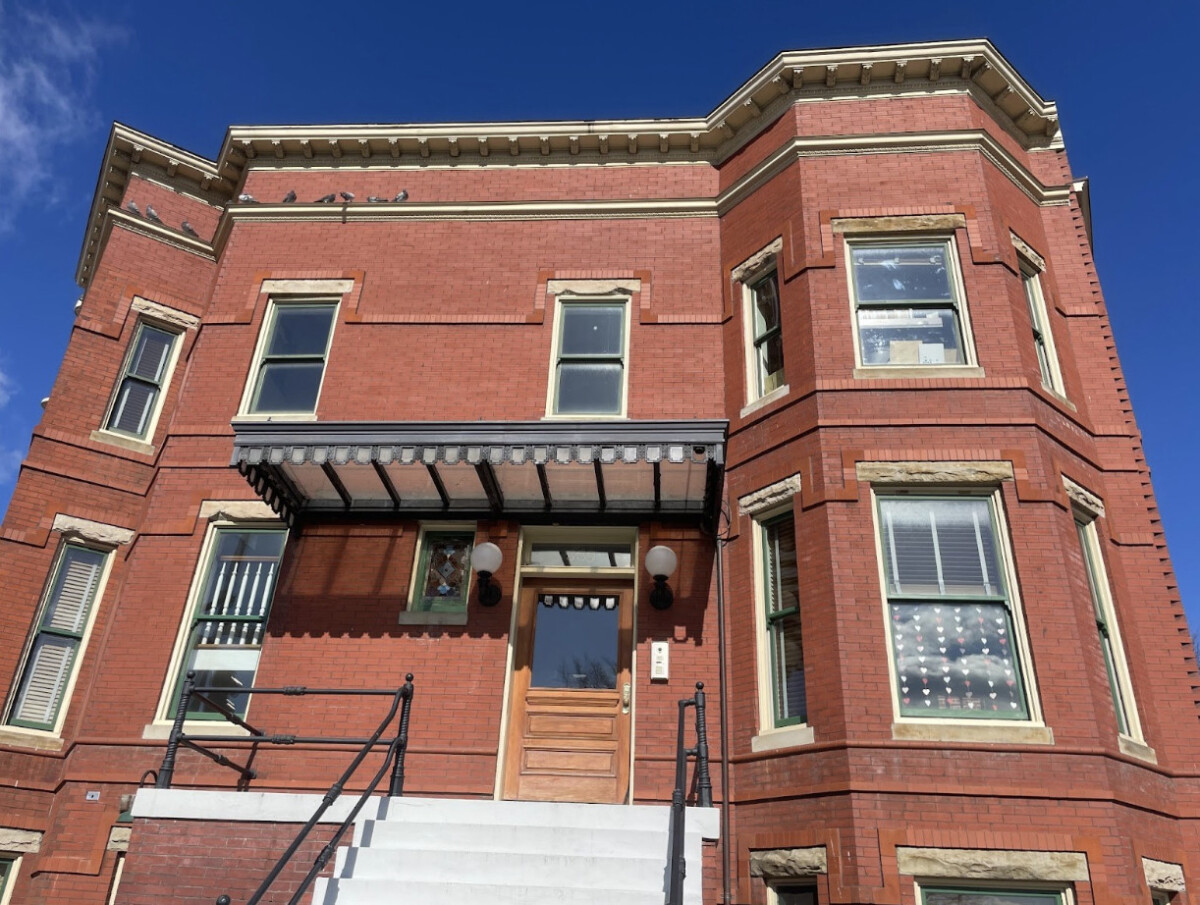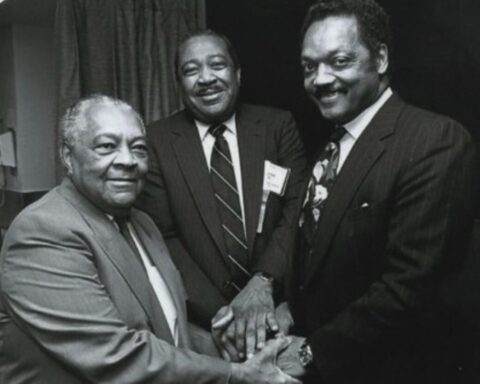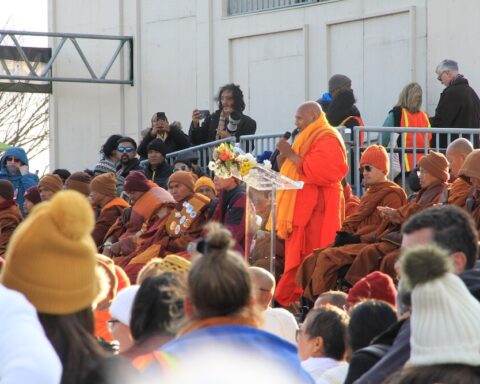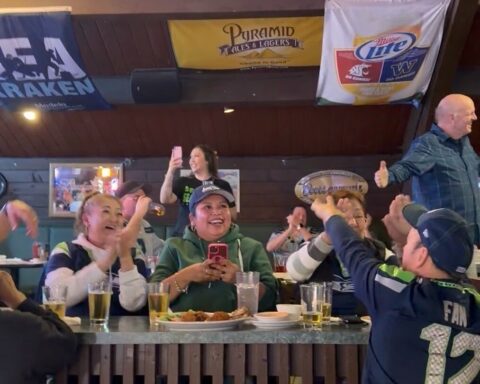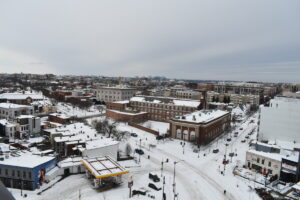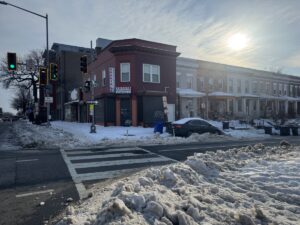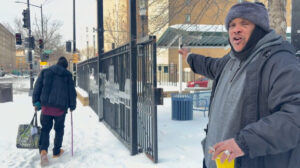LEDROIT PARK, D.C. — The steep, leveled stairway leads up to a building that once echoed with the sounds of final goodbyes. The wind cuts through the air as eyes peer through the windows, hoping to catch a glimpse of life behind the glass. Will anyone answer the door, or will this curious stranger remain unnoticed?
The former Frazier Funeral Home, once a cornerstone of LeDroit Park, founded in 1917 by Thomas Frazier, now stands as a repurposed apartment complex. Behind its walls lie the whispers of a storied past, from civic leadership to deep-rooted community impact.
Across the United States, the transformation of former morgues and funeral homes into condos, houses, and apartments has become a growing trend, blending the past with new urban development.
The Frazier legacy is deeply intertwined with the history of Black Washingtonians, yet much of it remains untold. Frazier was more than just a funeral director—he was a civic leader, a National Association for the Advancement of Colored People (NAACP) treasurer, and a man dedicated to service.
Historical daily newspaper, The Evening Star (1852 -1981), published Frazier’s obituary on Dec. 22, 1959, outlining his impact beyond funeral services.
Originally from Sumter, South Carolina, he moved to Washington in 1900 to attend Howard University before earning his mortuary science degree in 1912. He was a 33rd-degree Mason, an honorary life member of the National Funeral Directors Association, and a key figure in the NAACP. He also served as treasurer of the LeDroit Park Civic Association and was an active member of the Lincoln Memorial Congregational Temple, where he once served as a trustee.
While the Fraziers’ impact was undeniable, time has ushered in changes to both the building and its purpose.
(Photo: Thomas Swarm/Flickr)
One intriguing detail about this property is the evolution of its address over time. Frazier’s first funeral home operated at 309 Rhode Island Avenue Northwest. Later, historical records place the second location at 369 Rhode Island Avenue NW before its closure. Today, the building is commonly identified as 389 Rhode Island Avenue NW, though past records also reference 391 Rhode Island Avenue NW, adding another layer to its complex history.
As the building changed hands over the years, even its address seemed to shift, adding layers to its already complex history. Current owner Thomas Swarm explained that when he purchased the property, it was listed as 391 Rhode Island Avenue NW. After the permit was processed, D.C. officially changed the address to 389 Rhode Island Avenue NW. The reason for the shift remains unclear, adding mystery to the property’s history.
Swarm said the funeral home used to be two or three different houses, and the man who owned it before the Fraziers was a realtor who combined the properties.
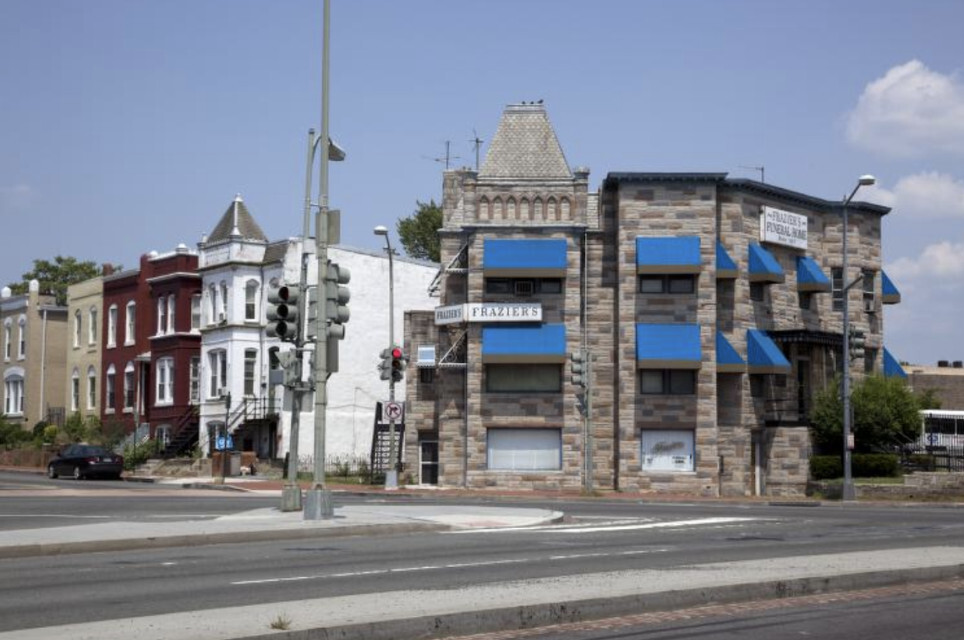
Beyond Frazier’s business and civic leadership, his legacy was also shaped by his lifelong partnership with his wife, Willie Rollins Frazier. A wedding announcement from PULSE magazine by Pearl Belden Cox offers a glimpse into their marriage, capturing a lighthearted yet telling moment from their wedding day.
The article, humorously titled “Does Luck Follow the Groom?”, highlighted how Frazier, eager to wed the accomplished young nurse, grew impatient during the ceremony, whispering to his best man, “Hand me that ring!”
The PULSE piece also offered a rare personal look into Frazier’s life outside his work. It noted that, despite his many responsibilities, happiness for him was simple—his wife’s homemade biscuits for dinner, ice cream and cake for dessert, and an annual retreat to Hot Springs. But it was his civic engagement and charitable work that truly cemented his influence, making the Fraziers a household name in Washington’s Black community.
During their time running the funeral home, Frazier and his wife lived upstairs while embalming bodies on the lower level. Mrs. Frazier, in addition to her work as a funeral director alongside her husband, was also a nurse. A graduate of Freedmen’s Hospital’s second nursing class, she established a nurse’s home to provide care for the sick, demonstrating her commitment to community service.
Frazier’s business grew so significantly that, in 1929, he relocated to the current address at 389 Rhode Island Avenue N.W. By 1959, the funeral home underwent further expansions to accommodate increasing demand. An advertisement from 1961 boasted that Frazier’s Funeral Home employed 14 full-time staff members, operated a fleet of modern funeral cars and never turned away a deserving case.
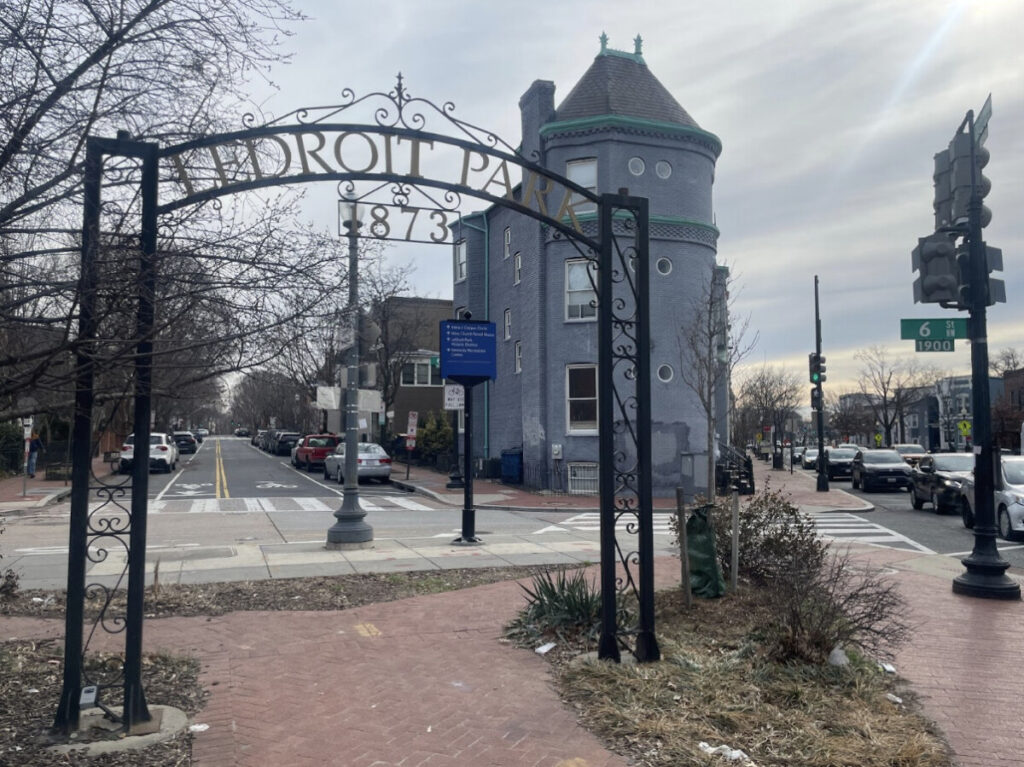
Swarm reflected on the Fraziers’ broader involvement in the community, mentioning the many oral stories of happenings within the building.
“One time there was a little chapel where people sat for funerals and an individual from the DC jail was given a chance to go and visit his mother’s wake,” recalled Swarm. “And he used it as an opportunity to escape.”
Overall, Swarm shared that his learnings of the Frazier family from cleaning the property once bought were that they held high significance within the surrounding community.
At the age of 85, Frazier died from pneumonia on Saturday, Dec. 19, 1959. Though Frazier’s life ended within the very walls of his funeral home, his passing is just one of many that occurred within its space. This raises an interesting question—why do people fear places where death has occurred?
David Taylor, the funeral home director of Frazier Mason Memorial Funeral Home on Marion Barry Ave Southeast, reflected on the misconceptions that people may perceive from death, especially surrounding homes where death has occurred.
“People are so incredibly afraid of the dead. Society has yet to hear about the dead hurting people… What about alive people hurting others? People die every day. More people die in homes than they do in hospitals… do we condemn those homes?,” Taylor said. “We often have a nonsensical approach to death, as if it’s voodoo. But it’s a natural part of life, something we all do. It’s not ugly or horrifying; it’s just the end.”
Although the building has taken on a new identity, the spirit of the Fraziers endures. Their work not only shaped Washington’s Black community in life but continues to echo in history. The farewells once spoken within these walls may have faded, but the legacy they left behind ensures they are never truly forgotten.
Morghan Manuel is a reporter for HUNewsService.com.

